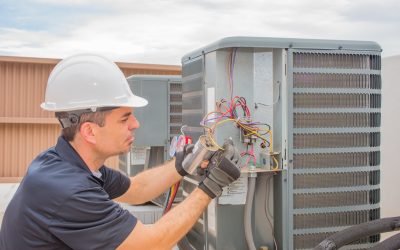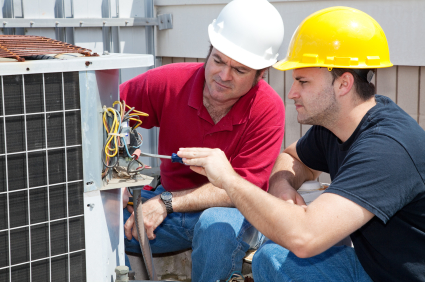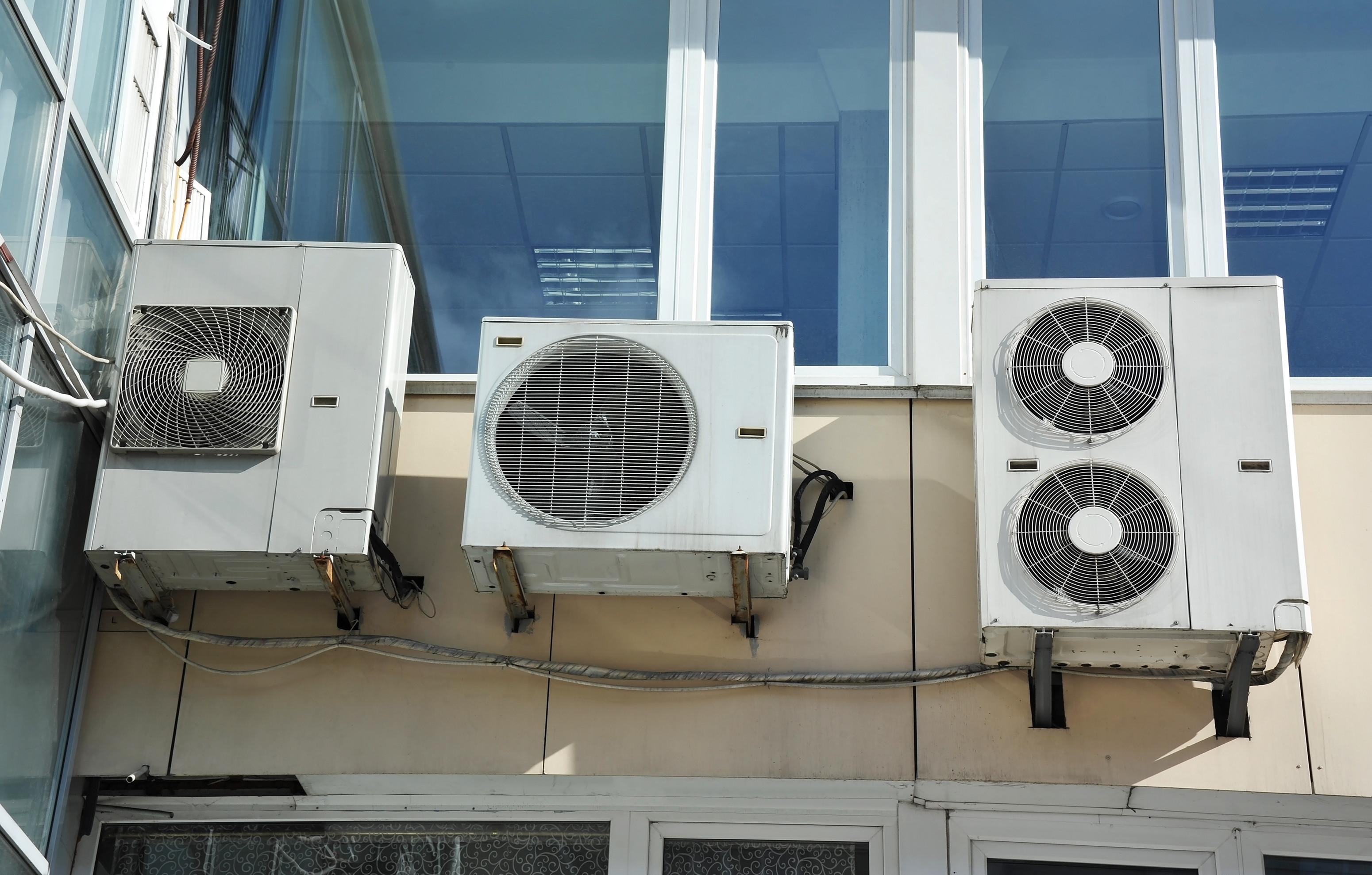Energy efficiency is an essential factor for businesses in Sun City, AZ, looking to reduce operational costs while maintaining a comfortable environment for employees and customers. Commercial HVAC systems, which account for a significant portion of a building’s energy consumption, are prime candidates for efficiency improvements. Whether you’re considering a new system installation or looking to upgrade your current one, understanding the role of energy efficiency in commercial HVAC systems can have long-term benefits.
The Importance of Energy Efficiency in Commercial HVAC Systems
Commercial HVAC systems are responsible for controlling temperature, humidity, and air quality in commercial spaces. Given their importance in maintaining comfort and productivity, the energy used by these systems can be a significant operating expense. Inefficient systems waste energy, driving up utility bills and leading to unnecessary expenses. By prioritizing energy efficiency, businesses can improve the performance of their HVAC systems while reducing energy consumption and lowering costs.
1. Reduced Operating Costs
One of the most immediate benefits of energy-efficient HVAC systems is lower operating costs. Inefficient systems often consume more energy to maintain the desired temperature, which can increase monthly utility bills. Energy-efficient HVAC units, on the other hand, use less energy to provide the same level of comfort, resulting in substantial savings over time.
For instance, newer, high-efficiency heating and cooling systems are designed to provide better performance while consuming less power. By replacing outdated units with energy-efficient models, businesses can see a significant reduction in their energy consumption and, ultimately, their utility bills.
If you’re considering upgrading to an energy-efficient system, working with a trusted AC repair contractor can ensure you select the right equipment for your business needs.
2. Longer System Lifespan
Energy-efficient HVAC systems are typically built with advanced technologies that are designed to last longer and operate more reliably than their less efficient counterparts. By investing in high-quality, energy-efficient units, businesses can extend the lifespan of their HVAC systems, reducing the need for frequent repairs or replacements.
An energy-efficient system is less likely to undergo excessive wear and tear because it operates more smoothly, without overworking. Proper maintenance and timely upgrades can help ensure that your HVAC system continues to function effectively for many years, which contributes to a better return on investment.
3. Improved Comfort and Productivity
Energy-efficient HVAC systems not only save money but also help create a more comfortable environment for employees, clients, and customers. Consistent, reliable temperature control enhances comfort, which can have a direct impact on employee productivity and customer satisfaction. Overheating or extreme cold in the workplace can lead to discomfort and reduced focus, affecting performance.
Energy-efficient systems are more reliable and maintain better control over temperature and humidity levels, ensuring a consistent and comfortable environment throughout the year. This can improve employee morale, reduce complaints, and create a more positive experience for customers.
4. Reduced Environmental Impact
In today’s business climate, there is growing emphasis on sustainability and environmental responsibility. An energy-efficient HVAC system reduces the amount of energy consumed, which in turn lowers greenhouse gas emissions. By investing in energy-efficient heating and cooling installation, businesses can reduce their carbon footprint and contribute to environmental sustainability.
Many commercial properties are now being built with green certifications and energy-efficient standards in mind, and businesses that adopt energy-efficient practices can further enhance their sustainability efforts. In addition, companies may qualify for tax credits, rebates, or incentives for implementing energy-efficient technologies, which can help offset the initial investment.
5. Better Temperature Control and Air Quality
Energy-efficient HVAC systems are designed to perform optimally, not just in terms of energy consumption, but also in terms of air quality and temperature control. Proper filtration, consistent airflow, and advanced temperature regulation systems ensure that the air within your business is both clean and comfortable.
In addition to improving comfort, energy-efficient systems often include advanced air filtration systems that can remove allergens, dust, and other particles from the air. This is particularly important for businesses where clean air is essential, such as healthcare facilities, gyms, or offices with high foot traffic.
How to Improve Energy Efficiency in Your Commercial HVAC System
There are several ways to improve the energy efficiency of your commercial HVAC system, whether you’re considering a new installation or upgrading an existing system. Below are a few tips for improving energy efficiency:
1. Regular Maintenance
Regular maintenance is crucial for ensuring that your HVAC system continues to operate efficiently. Routine inspections, filter replacements, and cleaning ensure that your system is running smoothly and not consuming excess energy. Professional HVAC maintenance can catch potential issues before they become major problems, keeping your system running efficiently and preventing unnecessary repairs.
2. Upgrade to Energy-Efficient Units
If your system is old or frequently requires repairs, upgrading to an energy-efficient model can provide immediate cost savings. Modern HVAC units are designed with advanced technologies, such as variable-speed fans and advanced heat exchangers, that improve performance while consuming less energy. A trusted professional can help you choose the right energy-efficient unit that fits your business’s needs.
3. Invest in Smart Thermostats and Controls
Smart thermostats allow you to better control the temperature in your building, optimizing energy use based on occupancy and usage patterns. With smart controls, you can set your system to run only when necessary, which reduces energy waste. Many smart thermostats also provide data analytics, helping you monitor and adjust usage patterns to maximize energy savings.
4. Improve Insulation and Airflow
Proper insulation and airflow management are essential for energy efficiency. Well-insulated buildings retain heating and cooling better, reducing the load on your HVAC system. Additionally, ensuring proper airflow throughout the building allows the system to run more efficiently, distributing air evenly and preventing hot or cold spots.
Energy efficiency is not just a trend; it’s a long-term strategy for reducing costs and enhancing comfort in commercial spaces. From lower energy bills to improved air quality and environmental benefits, investing in an energy-efficient HVAC system is one of the smartest decisions a business owner can make. If you’re ready to improve your system’s efficiency, reach out to a trusted AC repair contractor to help guide you through the installation process or to perform maintenance on your current system.


